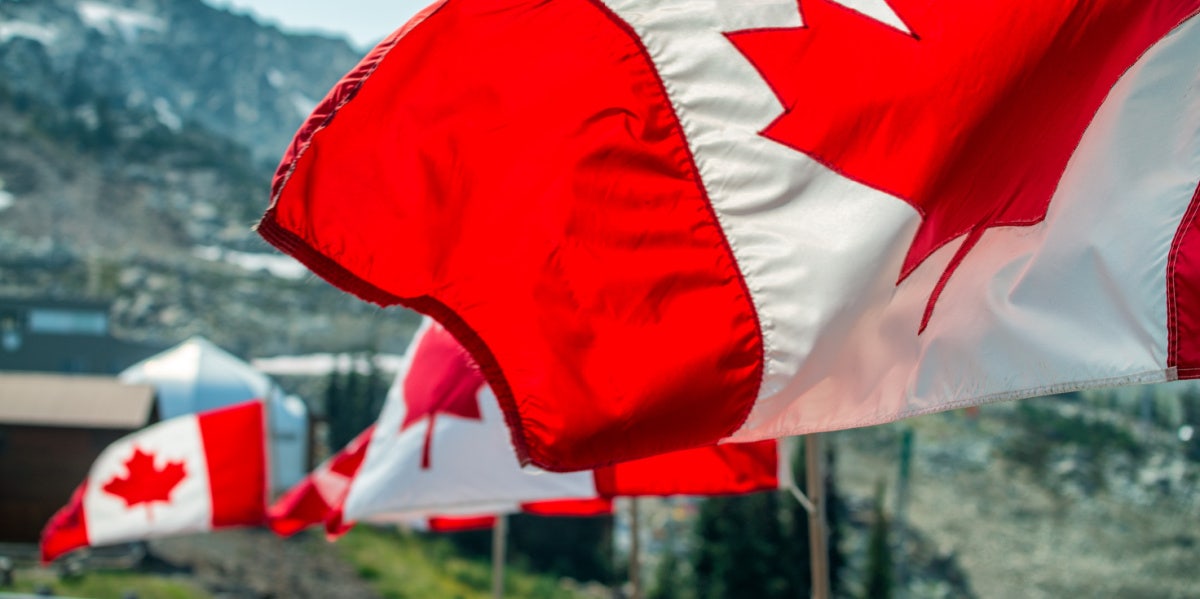Indigenous Communities Call To Cancel Canada Day After Discovery Of Almost 1,000 Children’s Bodies
"Indigenous people paid in full - with our lives."
 GagliardiPhotography / Shutterstock
GagliardiPhotography / Shutterstock With two tragic discoveries casting a shadow on Canada’s national day, Indigenous groups are calling for Canada Day to be canceled, or at least altered.
July 1 will mark the 154th anniversary of British colonies joining together to create the Canadian Confederation in 1867, uniting Canada, Noca Scotia and New Brunswick into a single Dominion.
For some members of the Indigenous community, the holiday originally known as Dominion Day celebrates a traumatic history of stolen land and lost life.
Why do Indigenous communities want to cancel Canada Day?
Celebrating Canada's Dominion seems particularly hard to accept for many Indigenous Canadians so soon after nearly 1,000 Indigenous bodies were discovered over the past number of months.
In late May, 215 bodies believed to belong to Indigenous children were discovered on the grounds of the former Kamloops Indian Residential School in British Columbia.
And on June 24, 751 more bodies were discovered in Saskatchewan on the grounds of another former residential school.
Unsurprisingly, Indigenous communities say they don't want to celebrate the birth of a nation that killed their children.
The discoveries are a grim reminder of what Canada Day and colonialism meant for the Indigenous communities who lived on the land long before any formal country was created.
“We will not celebrate stolen Indigenous land and stolen indigenous lives. Instead we will gather to honour all of the lives lost to the Canadian state,” said the group Idle No More as they called for national rallies to support Indigenous communities.
Sol Mamakwa, an Ontario lawmaker from Kingfisher Lake First Nation, asked that in place of celebrations, Canadians take the day as a chance to reflect and mourn the lives lost.
“Every Canadian pays a price for our shared history. We as Indigenous people paid in full with our lives, our families, our languages, our way of life, and our spirituality, and we continue to suffer,” he said.
Prime Minister Justin Trudeau issued a statement to say that the Canadian flag on the Peace Tower would be flown at half-mast to honor the lives lost at residential schools.
First Nations people are redefining Canada Day.
For Indigenous communities, Canada Day has always been a controversial topic.
The day commemorates centuries of forced assimilation for Indigenous communities who were stripped of their culture, names, and spirituality.
"Anyone who celebrates Canada Day is basically celebrating oppression and assimilation of Indigenous people and stolen land," Nakuset, Executive Director of the Native Women's Shelter of Montreal, told CBC News.
Already, several Canada Day celebrations have been postponed in the wake of the discoveries and new events have been put in their place.
In Montreal, a gathering of Indigenous people and allies will gather to demand accountability for the residential school deaths.
Legislation has also been passed to make Sept. 30 a statutory holiday called National Day of Truth and Reconciliation which will commemorate Indigenous lives that have been lost.
While Canada's Indian residential school system was in existence, more than 150,000 Indigenous children were forcibly taken from their families and sent to the schools.
They were required to change their names, convert to Christianity and give up their native languages.
The children became victims of physical, emotional and sexual abuse and many did not return home. It is estimated that at least 4,100 children died while attending the horrendous schools.
The schools, which ran for more than 100 years, are a source of intergenerational trauma for Indigenous communities who have mourned the recent discoveries as a confirmation of the history they had long insisted was true.
Alice Kelly is a writer living in Brooklyn, New York. Catch her covering all things social justice, news, and entertainment. Keep up with her on Twitter for more.
